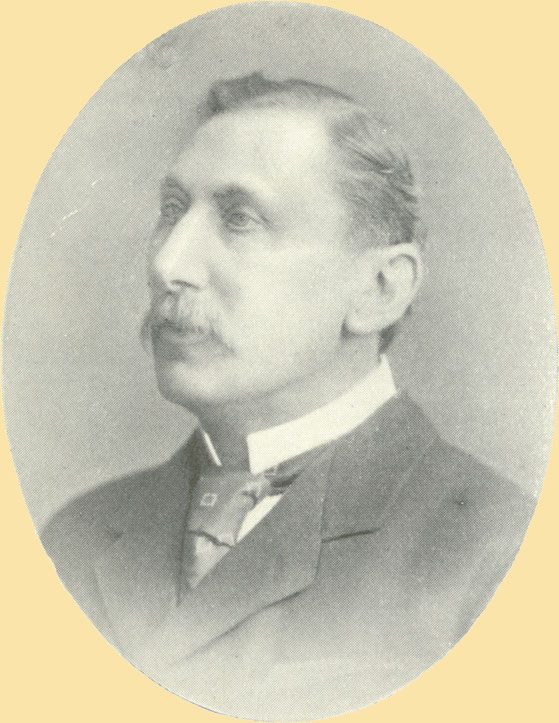Researched by Heritage Advisory Group
Peter Veitch was born in the Cape, South Africa in 1850. He came to Exeter when the family moved back to the city when he was about five or six years old. He was educated at Exeter School and later at Oundle Grammar School before joining his father’s firm in the seed department. The family lived at 11, Elm Grove Road, St David’s and a Blue Plaque can be seen on the house opposite Bury Meadow where both Robert and later Peter Veitch lived. The property had direct access to the nursery through a gate in the wall of the back garden.
Following experience at a couple of other British nurseries, between 1867 and 1868, Peter Veitch worked at the famous Coombe Wood Nursery near London. It was part of the firm of James Veitch & Sons, Chelsea of which his cousin, Harry Veitch, was now the head. Peter then worked in Germany and France before returning to the Chelsea nursery for a few years.
It is possible that he met the horticulturist Frederick W. Meyer in Prussia. Meyer later spent 30 highly successful years designing gardens for Robert Veitch & Son in Exeter. In 1875, Harry sent Peter on a three year trip and he visited most parts of Australia, New Zealand, Fiji, New Caledonia and Borneo. Unfortunately, he lost two collections of plants; one in a storm and another when his ship was wrecked.
Soon afterwards, he returned to Exeter and joined his father. The Exeter firm then became Robert Veitch & Son, it was still on New North Road. Over the years, Peter developed the nursery to specialise in Rhododendrons, Camellias, Magnolias and Nerines, as well as rock and water gardens under Meyer’s expertise.
Peter Veitch was also involved with many other activities in the city. He was a local councillor and a member of the Committee at the Royal Benevolent Institution which helps to support struggling gardeners (known today as Perennial). James Veitch senior and Sir Harry Veitch were also great supporters of this charity. Peter was also a member of the Council of the Agricultural Association, was on the Agricultural Education Committee and a Governor at The Maynard School, which his daughter Mildred attended. He became an early president of the Horticultural Trades Association and in 1916 was awarded the prestigious Victoria Medal of Honour for services to horticulture.
He also supported sport in the city as president of the Exeter and County Cricket Club and president of the Rugby Football Club.
Eventually he was joined in the business by his daughter, Miss A. Mildred Veitch B.A. (1889-1970), who later became the firm’s first Managing Director at a time when few women held such positions. Having lost her fiancée in The Great War she continued the nursery until its eventual sale to St Bridget Nurseries in 1969.
Peter is buried at St David’s Parish Church, Exeter along with his wife Harriette. Two of their sons who died abroad are also remembered here. Major J. Leonard Veitch served in the Cyclists’ Brigade of the Devonshire Regiment throughout most of the First World War, he died at Nieppe in 1918, aged 30, just a few months before the end of the War. Harold M. Veitch died in Calcutta (now Kolkata) a few years later in 1923, aged 40.
